 Have you completed your book? It may be the first book you’ve written, or it may be the first book you’re trying to get published. Having basic knowledge about how the publishing industry operates is critical to getting your work seen. New writers can choose how they’d like to get exposure for their book. This article discusses the pros and cons of the main publishing options so new writers can make informed decisions when choosing the best publisher.
Have you completed your book? It may be the first book you’ve written, or it may be the first book you’re trying to get published. Having basic knowledge about how the publishing industry operates is critical to getting your work seen. New writers can choose how they’d like to get exposure for their book. This article discusses the pros and cons of the main publishing options so new writers can make informed decisions when choosing the best publisher.
Traditional Publishing
This is the traditional method of getting your book to the general public. Your book is submitted to agents over a specified period, and those agents then pass your book on to a suitable publisher. When a publisher does decide to publish your book, you and your agent will get a contract. Most publishers will assign you an editor to fix small details in the book. Once it’s ready for print, your book will be published and marketed under the publisher’s brand.
Pros of Traditional Publishing
- Professional Team: Working under a traditional publisher, you are covered in various aspects. Before the book is finally published, you’ll work with editors, copy editors, and cover designers. Publishers sometimes have an individual marketing arm and PR office. These will help market your book to your target audience. However, the level of marketing depends on how much the publisher chooses to invest in your book. Some publishers will send you out on nationwide book tours; others may just market your book through social media and newspapers. If you get published by a mid-sized publisher or a boutique publisher, you’ll often have to do the marketing to bookstores yourself. A significant number of new writers join the industry intending to write only. If you intend to forego marketing, you’ll need an excellent publisher and agent to work on the necessary marketing.
- Excellent Print Distribution Strategies: This is where traditional publishers have an advantage. Traditional publishers cooperate with sales representatives who are responsible for going around to bookstores collecting orders. Large publishers print hundreds of thousands of books and distribute them into mainstream bookstores. Going with traditional publishers means your book gets great exposure.
- No Upfront Financial Costs: You are not expected to pay for anything when you sign a deal with a traditional publisher. As a new writer, note that when you are asked for money, that is not a traditional publisher deal. There are various publishers in the industry; always be very careful if a publisher asks you for money.
- Possible to Become a Household Name: A very small percentage of authors who have been published with traditional publishers have gone on to become household names. Even if you do not become a household name, your book can still be reviewed by major newspapers and magazines, simply because it has been published by a traditional publisher. While it is possible for authors to become household names by self-publishing, which Stephen King was able to do, it is a lot easier with traditional publishing.
Cons of Traditional Publishing
- Long Journey: You might end up writing and editing your work within a year, but acquiring an agent might take you one or two years, and getting your book published might take you another five years. All these steps require patience; in the end, you may never land an agent and you may never get a book deal through a traditional publisher.
- Loss of Creative Control: This can be one of the more frustrating parts of working with traditional publishers. Many authors have the titles of their books changed or have marketing angles that they are not happy with. You might also acquire an editor whom you might not be happy working with. The publisher and editor may push for creative changes that you may not particularly care for either.
- Poor Royalty Rates: Royalty rates are the percentage of the sales of the books. Most traditional publishers take away all the discounts, returns, and marketing costs before your total percentage is deducted. Even though the rates range between 7% and 25%, they differ depending on the format (e-book, handbook, etc.).[1][2]
Self-Publishing
As a new writer who wants to either develop a short story collection or a novel, self-publishing offers you numerous advantages. This mode of publishing lets the author keep up to 70-90% of the profits.[1][2]
Pros of Self-Publishing
- Creative Control: Self-publishing gives you total control over your book. Writers often want to tell a story without a team of editors changing it. This is the perfect opportunity to get your work out in the way you intended.
- Exceptional Royalty Rates: Unlike traditional publishing, where the author is given royalty rates ranging between 7% to 25%, self-publishing offers authors a royalty rate of over 70%.[1][2] And if you do the marketing yourself, your return can be 90%. The small percentage will go to your printers and distribution company.
- Fast Publishing Times: After the hard work of writing and editing your book, it can take a month to format your book for print and get it to online booksellers. Traditional publishing, on the other hand, can take a year or more before your book is on bookshelves.
- Marketing Your Name by Yourself: As a new writer, this is the best opportunity to attract the industry’s attention. When you market your name alone, you can come up with innovative ways to get your name out there. This can also be a way to prove to the titans in the publishing industry that you can produce exceptional work and get it seen. A significant number of writers started out by self-publishing. This can be a great route for new writers.
Cons of Self-Publishing
Despite the self-publishing pros, it does have huge disadvantages.
- Poor Visibility: Traditional publishing offers writers a huge platform. In addition, it comes with status. When you choose to self-publish, you won’t get reviews from major newspapers and magazines. It will also be challenging to get your book into mainstream bookstores. This reduces your visibility and makes it difficult to become a household name. However, some big-name authors, such as Stephen King, got their start with self-published books.
- Relatively Expensive: Unlike in traditional publishing, where there are no costs, with self-publishing, you will be paying for everything. This includes printing your books, paying someone to design your books, paying for a copy editor, paying to market your book, and so on. In fact, you will carry the whole burden. Plus, there are no advances for a self-published author.
- No External Support: Traditional publishing offers a supportive staff that comes up with a marketing strategy that helps authors market their book. In self-publishing, the author is usually responsible for all the marketing. You have to make contacts with reviewers, podcasts, radio shows, etc., to get your book out to the public. While self-publishers can hire a marketing team, it comes at a cost.
Conclusion
The publishing industry is vast, which means authors must decide what kind of route best suits their work. Weigh the pros and cons and decide which path is best for you. For more information on publishing, feel free to contact me any time.
References
[1] https://www.thecreativepenn.com/2018/04/11/pros-and-cons-of-traditional-publishing-vs-self-publishing/
[2] https://www.masterclass.com/articles/pros-and-cons-of-self-publishing-your-book#what-is-selfpublishing




